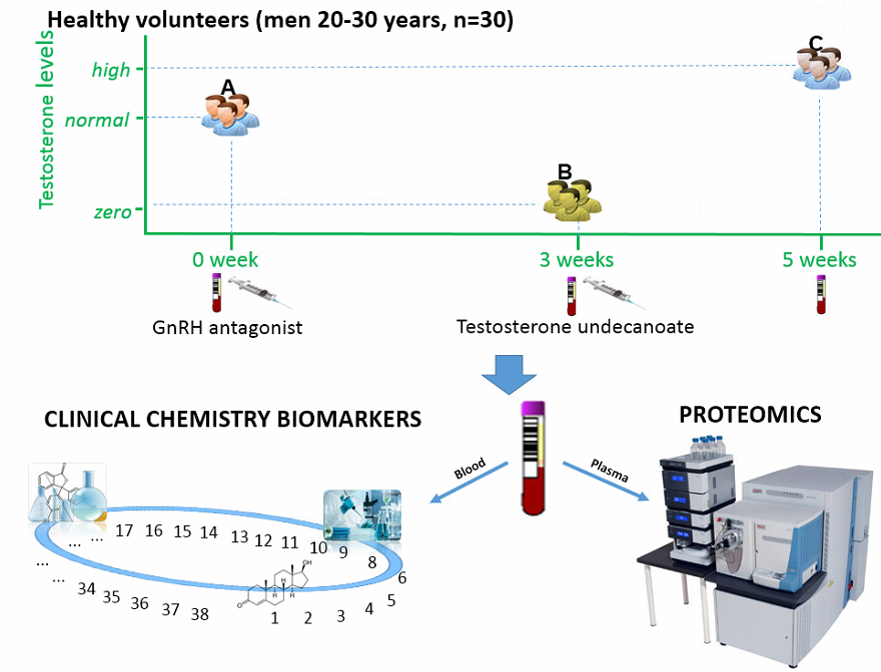This study is performed at the Department of Translational Medicine at Lund University in Sweden
The concentration of testosterone decreases with age. Low concentrations, after age correction, are sometimes observed in middle-aged and elder men. The risk of cardiovascular disease, diabetes, obesity and metabolic syndrome is increased in men with lower blood levels of testosterone. Decreased life expectancy has also been found in men with low testosterone levels compared to men with normal levels of the hormone. It is, however difficult to identify individuals who have an imbalance in testosterone signaling. The current methods to measure testosterone in plasma, do not accurately reflect hormonal effects.
We have identified proteins that change due to testosterone activity by quantitative proteomic methods. Proteomics are the large-scale study of proteins and we identify up- and down-regulated peptides by, comparing blood plasma in young healthy males (n=30) before and after pharmaceutical induction of severe depletion of testosterone. This is induced with GnRH-antagonist (degarelix) which binds to gonadotropin releasing hormone receptors in the pituitary gland inhibiting the testosterone production in the testes. Subsequently, the healthy males receive an injection of synthetic testosterone (nebido).

Figure. Panel of proteins that change due to the activity of testosterone from our designed human model (n=30). Paired analysis with time points: A: 0 week – baseline, B: 3 weeks – low testosterone and C: 5 weeks – recovered testosterone. Blood samples collected are sent to Clinical Chemistry in Malmö for analysis and to Clinical Protein Science and Imaging for proteomics analysis.
We have access to the newest methodology in mass spectrometry, which enables simultaneous analysis of thousands of peptide sequences in a single plasma sample. The identified new testosterone biomarkers have been analyzed in samples from males with hypogonadism who are patients at the Reproductive Medicine Center at Skåne University hospital (n=85). We have also started to analyze males with cardiovascular disease (n=185). The next cohort we will analyze will be on patients with diabetes.
Our project provides us with new information in the normal physiology of testosterone as well as the pathophysiology. It also has the potential to lead to a new and optimized way to measure testosterone in the clinic, which would improve patient diagnostics and treatment.
The Department of Reproduction and Growth at Rigshospitalet has analyzed samples from our healthy males in order to study the changes in the steroid patterns and changes in Anti Müllerian Hormone (AMH), Inhibin B, IGF-1 and INSL3. We have also collaborated with Claus Yding Andersen (Rigshospitalet, Denmark) and Anne Lis Mikkelsen Englund (Zealand University Hospital), where we have analyzed follicle samples. This has resulted in novel findings, including a new patent.
We now also have a new PhD student, Indira Pla Parada who is focusing on bioinformatics analyses of the data. Her project will both be on the testosterone proteomics study and the follicle studies.
